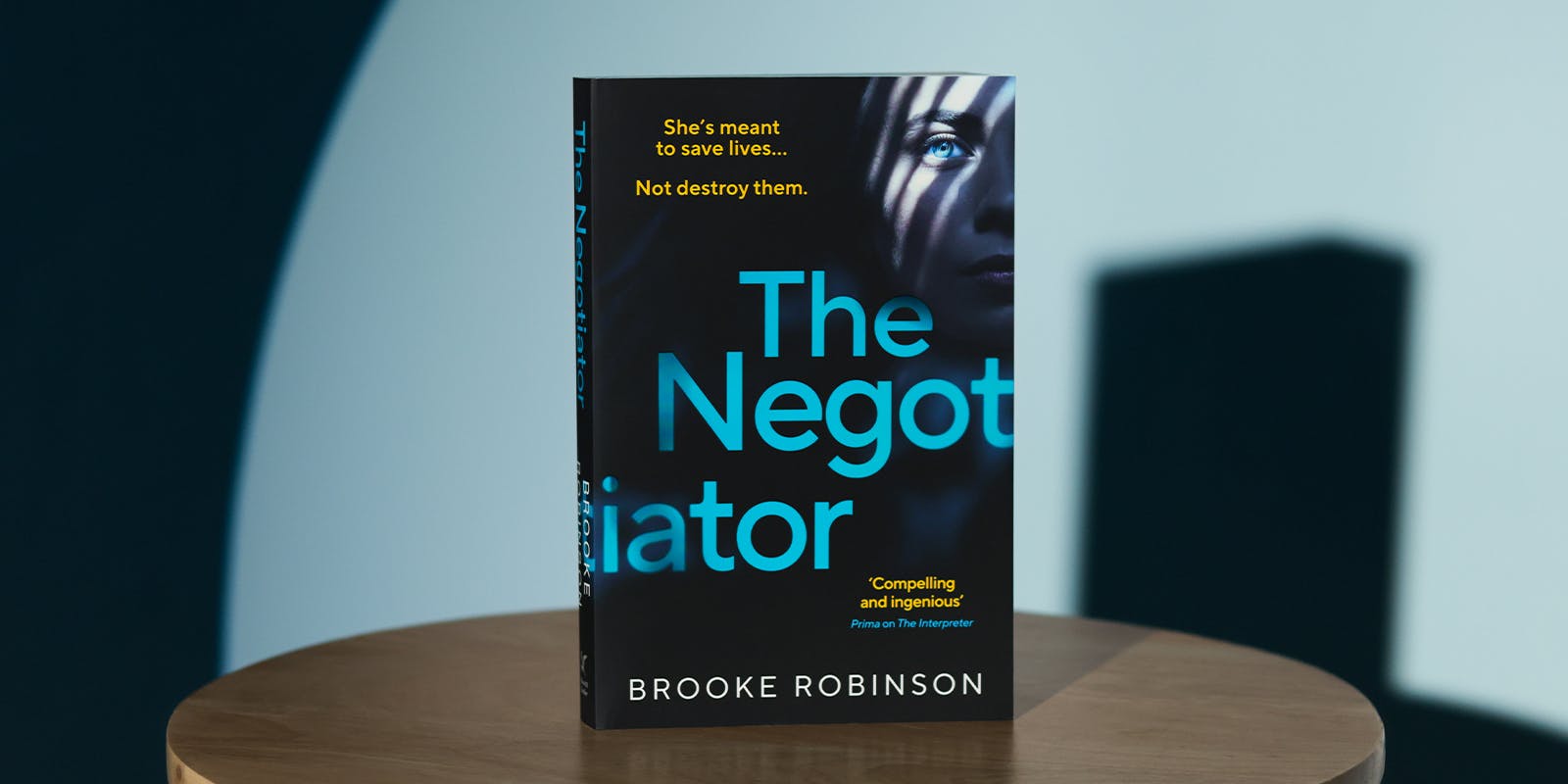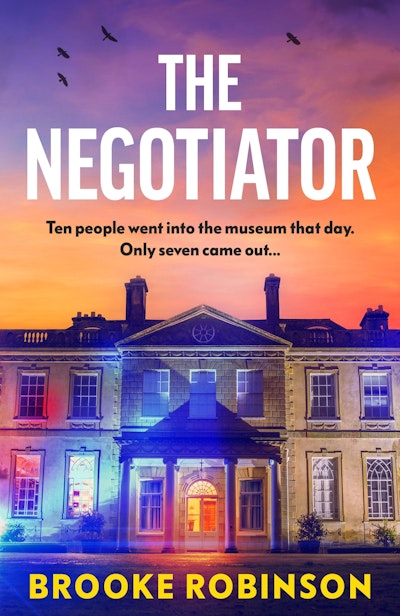Brooke Robinson shares her secrets to crafting an intriguing plotline, her love of research and how she winds down after a day of writing about high-stakes scenarios.
What draws you to the crime genre?
I’m not particularly conscious of writing in the crime genre – I just write what fascinates and preoccupies me and that seems to naturally fit within what we call ‘crime’.
Where did you find the inspiration to write The Negotiator?
The work of the police negotiator has long intrigued me as it stands apart from most other policing roles. Negotiators are thrown into incredibly tense life-and-death situations and their only weapon is their words. As a writer, there’s an immediate connection with a character whose job is also dependent upon their careful selection and use of words.
How do you craft an intriguing plot that keeps readers guessing?
I think it’s all about constantly raising questions in the mind of the reader. That might be questions around why a character is behaving in a certain way, what they’re planning, what they’re covering up, or why they’re lying to others or themselves.
Did you approach writing The Negotiator differently than your debut novel The Interpreter?
The Negotiator is written in the third person, it’s also a dual timeline, and from the point-of-view of two characters – these technical qualities are all different to The Interpreter, and were ways for me to stretch and challenge myself with my second novel.
What is your research process like?
I read a lot of newspaper articles and academic journals. I always interview at least one or two experts in the field, too, to get my specific questions answered. I do need to be careful not to go too deep down into research rabbit holes, as I find it really enjoyable and could easily spend far too much time researching instead of actually writing.
The situations you write about are often very tense and the stakes are very high. How do you wind down after a day of writing?
Normally I like my TV shows and films to be down the crime and thriller end of the spectrum, but when I’m deep into the editing process of my own thrillers, I find that I need to watch comedy at the end of the day to rest my brain. I might be re-watching episodes of an old favourite Like Peep Show, or a new stand-up comedy special on Netflix. I also spend a lot of time wandering around art galleries.













